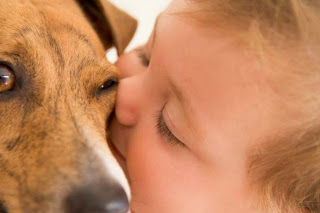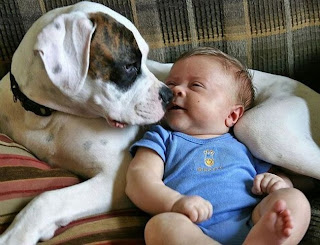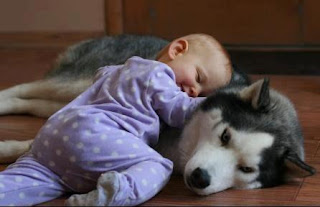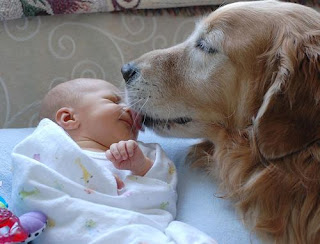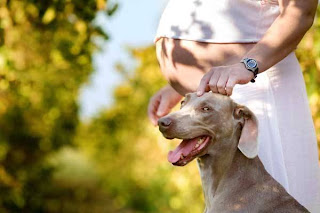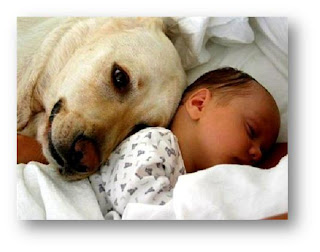¿Cómo introducir al bebé antes de su nacimiento?
El proceso de introducción deber seguir los siguientes pasos:
- Cualquier propietario, bajo estas circunstancias, debe asegurarse de tener un adecuado control sobre su perro e iniciar una educación básica sobre este tema. Este proceso durará aproximadamente un mes.
- Antes de la llegada del bebé, los propietarios deben establecer unos horarios regulares de comidas y paseos que se ajusten a las nuevas circunstancias del hogar. Es indispensable respetar estos nuevos horarios cuando llegué el bebé. Durante los paseos y las comidas, es fundamental acariciar al perro, cuidarlo o hablarle con cariño, para que él sepa que, a pesar de la nueva situación, también cuenta y sigue siendo igual de importante para la familia.
- Las habitaciones en las que estará el bebé, tendrán un olor diferente, nuevo, para el animal que inevitablemente despertarán su curiosidad. Por esto, es importante acostumbrar a nuestra mascota a los nuevos olores antes de la llegada del bebé.
- El día de la llegada del nuevo miembro, los propietarios necesitarán ayuda. Deben poder saludar y prestar atención a su mascota sin tener que regañar o echar al animal, porque éste esté molestando al bebé. Recordar que las asociaciones con el nuevo miembro de la familia deben ser positivas.
- Cuando la mascota esté tranquila procederemos a realizar las presentaciones entre el perro y el bebé. El animal, vigilado en todo momento, debe oler y explorar al niño, para reconocerlo como un miembro más de la familia. Observaremos que el perro se muestra temeroso, en este caso, deberemos hablarle suavemente, acariciarlo y animarlo para oler y conocer al bebé.
- Lo normal es que después de unas tres semanas nuestra mascota haya aceptado al bebé sin presentar malas conductas. No obstante, y esto es importante, nunca debe dejar solos al bebé y al perro.
- Los bozales pueden proteger a los bebes de posibles mordeduras, pero no, de posibles fracturas sin mala intención por parte del perro.
- Un animal doméstico no debe dormir en el cuarto del bebé, lo más conveniente es utilizar un intercomunicador y que el bebé duerma con la puerta cerrada.
How to introduce your baby before birth?
The introduction process must follow the following steps:
- Any owner, under these circumstances, you must ensure you have adequate control over your dog and start a basic education on this topic. This process will take about a month.
- Before the baby arrives, owners should establish a regular schedule of meals and rides to fit the new circumstances of the household. It is essential to respect these new times when I got the baby. During the walks and meals, it is essential to pet the dog, care or talk fondly, for he knows that, despite the new situation, also has and is still as important to the family.
- The rooms in which the baby will be, will have a different smell, again, for the animal that inevitably arouse their curiosity. Therefore, it is important to accustom your pet to the new smells before the baby arrives.
- The day of the arrival of the new member, the owners need help. Must be able to greet and pay attention to your pet without having to scold or take the animal, because this is bothering the baby. Remember that partnerships with the newest member of the family should be positive.
- When the pet is calm proceed to make introductions between the dog and the baby. The animal, guarded at all times, should smell and explore the child, to recognize it as a member of the family. Observe that the dog is fearful, in this case, we speak softly, caress and encourage to smell and see the baby.
- Typically, about three weeks after our baby pet accepted without presenting misconduct. However, and this is important, you should never leave a baby alone and the dog.
- The muzzles can protect babies from potential bites, but no, possible fractures without malice by the dog.
- A pet should not sleep in the baby's room, it is best to use an intercom and baby to sleep with the door closed.
